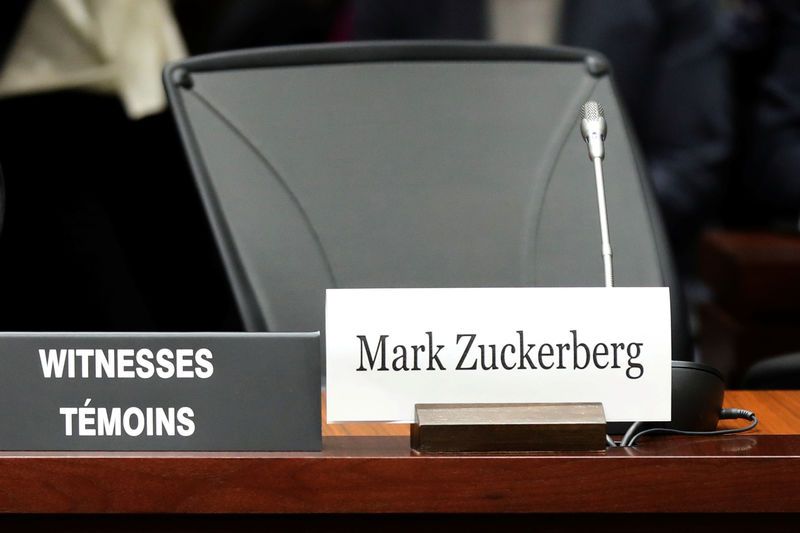

By Steve Scherer
OTTAWA (Reuters) – Canadian lawmakers fumed on Tuesday when Facebook Inc founder and Chief Executive Mark Zuckerberg snubbed an invitation to Ottawa to testify on privacy and democracy before an international panel, slapping the billionaire with a standing summons.
It was the second time in six months Zuckerberg and Facebook’s Chief Operating Office Sheryl Sandberg have failed to show up when invited to address a committee of international lawmakers investigating disinformation, privacy and how to protect democracy.
Zuckerberg and Sandberg will be served with an formal summons should they “decide to come to Canada to go fishing,” said Canada’s Charlie Angus, a parliamentarian for the left-leaning New Democratic Party. “It’s not good enough for them to blow us off.”
If Zuckerberg and Sandberg do not comply, parliament could hold them in contempt, but it would be mainly a symbolic move.
“It’s an expression by parliament that it’s unacceptable behavior,” Nathaniel Erskine-Smith, a Canadian Liberal lawmaker, told Reuters after the hearing.
Zuckerberg wrote an editorial published two months ago in which he said he was “looking forward” to discussing “with lawmakers around the world” the same issues being addressed by the committee.
“If (Zuckerberg) was an honest individual in writing those words, he’d be sitting in that chair today,” Erskine-Smith said.
Kevin Chan and Neil Potts, both global policy directors at Facebook, attended the committee meeting and responded to questions.
Responding to criticism of Zuckerberg and Sandberg’s absence, Potts said: “Mark and Sheryl, our CEO and COO, are committed to working with government in a responsible manner. They feel that we have their mandate to be here today before you to engage on these topics.”
Lawmakers from a dozen countries, including Canada, are on the so-called “International Grand Committee on Big Data, Privacy and Democracy”. The committee members pelted the two Facebook representatives – as well as representatives from Google and Twitter – with questions about how they handle fake news and privacy.
Canada will hold a general election in October and there is concern about potential interference, and Canadian security services are sounding the alarm about what they see as a potential weakness in political parties’ cyber networks.
Against this backdrop, Canada’s relationship with Facebook has been rocky in recent months.
In April, Canada’s Privacy Commissioner Daniel Therrien said Facebook broke Canadian privacy laws when it collected the information of some 600,000 citizens, and he said he would seek a court order to force the social media giant to change its practices.
Last month, Canada’s government said the world’s major social media companies, including Facebook, were not doing enough to help it combat potential foreign meddling in the national elections, adding that they may need to be regulated.
(Reporting by Steve Scherer; Editing by Nick Zieminski and Tom Brown)












